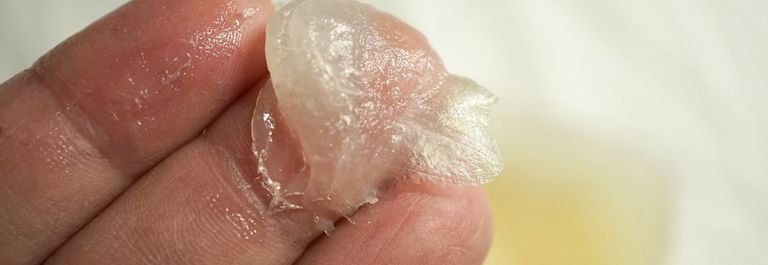Eczema is a group of conditions that cause the skin to be itchy, inflamed, and irritated. While diet is an important part of overall health and wellbeing, research shows there’s a close link between diet and eczema, particularly inflammation caused by salicylates.
Salicylates are natural chemicals made by plants that are found in many common foods. We also see both natural and synthetic salicylates in many of our health and beauty products. This natural pesticide chemicals could be one of the reasons your eczema continues to flare up despite your best treatment efforts.
In this post, we’ll explore the link between salicylates and eczema, including:
- Eczema triggers and diet
- Where salicylates are found
- Healing your skin from the inside out through diet
Read on to learn more about the relationship between eczema and salicylates and how reducing salicylates in your diet can help clear up your eczema and heal your skin naturally.
Understanding Eczema Triggers
Eczema is an inflammatory disease. Inflammation results when your body reacts to various things in your environment that may be typically harmless. This can cause symptoms such as extremely itchy, inflamed and irritated skin.
Common eczema triggers are:
- Stress
- Chemicals found in beauty or household products (consider switching to detergent for sensitive skin)
- Climate (dry, cold air)
- Pet fur
And of course, the food you eat!
What are Salicylates?
Salicylates are natural chemicals made by plants for self-protection and are found in a variety of fruits, vegetables, herbs, nuts and spices. A salicylate sensitivity (also known as salicylate intolerance), is the most common chemical sensitivity that people with eczema deal with. People with salicylate sensitivity react to regular amounts of salicylates that are found in common everyday food.
Some common food culprits that are high in salicylates are:
- Certain vegetables (such as broccoli, spinach, mushrooms, spinach, sweet potato and cucumbers)
- Certain fruit (such as apricots, blackberries, grapes, cherries, pineapples and plums)
- Spices (such as vanilla, cloves, and cinnamon)
- Other sources (such as tea, wine, vinegar, mints, almonds)
Low Salicylate Foods
While you should reduce your intake of foods with salicylates in large amounts, here are some foods that are recommended for an eczema diet:
- Papaya
- Saffron
- Flax seeds
- Spring onions
Salicylic Acid and Eczema
Another place you may have heard of salicylates is from the ingredient list on your skincare products. For example, salicylic acid is a common ingredient found in over-the-counter acne products. However, this ingredient is also sometimes used in eczema products or on its own as a way to soften the skin or loosen the dry and rough skin caused by eczema.
But is this ingredient causing your skin even more irritation? Unfortunately, these products tend to dry out or irritate skin, which is a problem for people with eczema. Consider using a gentle eczema cream instead.
Start With an Elimination Diet
A great way to discover if your diet is contributing to your eczema is to slowly remove foods high in salicylates, as well as inflammatory foods from your diet.
You can do this through an elimination diet. This involves removing certain foods from your diet for a specific amount of time and then slowly reincorporating. Monitoring the results and determining which caused a reaction can help you determine exactly which foods are triggering your eczema.
Be sure to speak to your doctor or dietician before starting an eczema elimination diet to ensure you are still getting all essential nutrients.
Start Soothing your Eczema today
Start healing your skin from the inside out with these helpful tips on eczema and diet.



